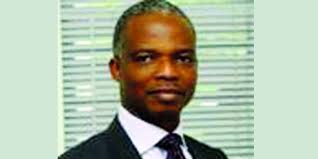Lagos Business School (LBS) lecturer Dr Doyin Salami has predicted that the quantitative tapering in the U.S. would cause a drop in Nigeria’s foreign investment inflow in 2014. Salami made the assertion during a breakfast meeting organised by the Fund Managers Association of Nigeria (FMAD) in Lagos.
He said that the U.S. quantitative tapering would lead to investment out flow in emerging and frontier markets, including Nigeria. Salami that the nation would face weaker currency, high interest rates, inflation rates, high expenditure and slippery revenue due to forthcoming general elections.
He also said that in spite of the challenges, the Nigerian economy would experience stable growth in the medium-term with progress in power reforms and transportation transformation. Salami stressed the need for development of new products and markets by fund managers for economic growth and development.
“For Nigeria to remain competitive in the global market, there is need to develop dynamic products and new markets where foreign investment inflows could be channeled to other sectors of the economy,” he said. Salami said that the market stakeholders needed to be concerned on how to improve local participation in the market.
He said that fund managers should strengthen their risk management strategies to avoid being displaced by international players.
Also speaking, Mrs Louisa Eni-Umukoro, Director, Fund Management and Collective Investment Scheme (CIS) of the Securities and Exchange Commission (SEC), said that the commission would work with FMAD to improve the industry.
Eni-Umukoro said that the association should map out strategies aimed at increasing the number of CIS subscribers to a sizeable percentage of the nation’s population.
She advised that FMAD should liaise with banks and insurance companies to increase the distribution channels of mutual funds and CIS in the country.
According to her, fund managers should ensure that funds are world-class to be globally competitive. Mr Michael Oyebola, FMAD President, said that investor education was important for the growth of the industry. Oyebola said that most of the registered funds were not known by the public.
He also enjoined SEC to increase its investor education campaign for wider knowledge of mutual funds by the investing public.

